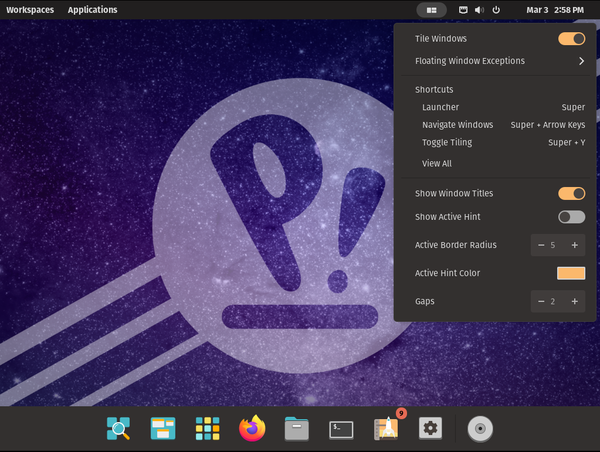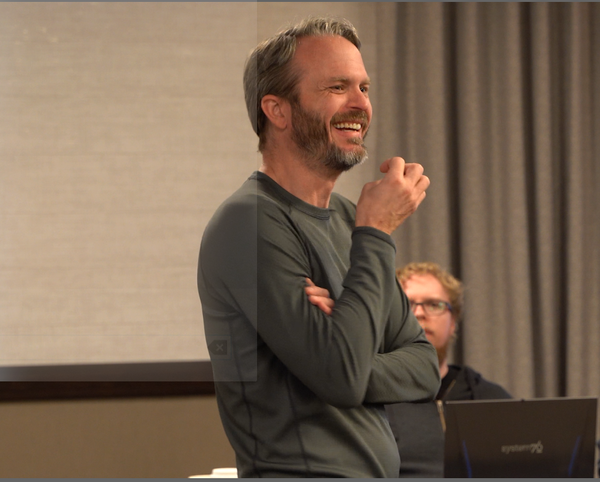System76’s Integrated Open Source Distro
A Rare Find

System76 integrates its open source distro, Pop_OS!, with hardware, giving Linux users a taste of what Windows and macOS users have always enjoyed.
In an earlier issue of Linux Magazine, I wrote about Pop!_OS, the recent distro by System76. At the time, it seemed to me that Pop!_OS’s main feature was the simplest and most effective tiling window manager yet (Figure 1). However, more recently, as I shopped for a new laptop and eventually purchased one from System76, I realized that I was looking at something rare: a commercial distribution that was integrated into the hardware, with utilities designed specifically for System76 computers and keyboards. The only other example of an integrated commercial distro of which I am aware is Purism, a company in the same niche. Intrigued, I asked CEO Carl Richell (Figure 2), Marketing Director Louisa Bisio, and Media Relations Manager Adam Balla for more information. What follows are their collective answers.


[...]
Buy Linux Magazine
Subscribe to our Linux Newsletters
Find Linux and Open Source Jobs
Subscribe to our ADMIN Newsletters
Support Our Work
Linux Magazine content is made possible with support from readers like you. Please consider contributing when you’ve found an article to be beneficial.

News
-
The Next Linux Kernel Turns 7.0
Linus Torvalds has announced that after Linux kernel 6.19, we'll finally reach the 7.0 iteration stage.
-
Linux From Scratch Drops SysVinit Support
LFS will no longer support SysVinit.
-
LibreOffice 26.2 Now Available
With new features, improvements, and bug fixes, LibreOffice 26.2 delivers a modern, polished office suite without compromise.
-
Linux Kernel Project Releases Project Continuity Document
What happens to Linux when there's no Linus? It's a question many of us have asked over the years, and it seems it's also on the minds of the Linux kernel project.
-
Mecha Systems Introduces Linux Handheld
Mecha Systems has revealed its Mecha Comet, a new handheld computer powered by – you guessed it – Linux.
-
MX Linux 25.1 Features Dual Init System ISO
The latest release of MX Linux caters to lovers of two different init systems and even offers instructions on how to transition.
-
Photoshop on Linux?
A developer has patched Wine so that it'll run specific versions of Photoshop that depend on Adobe Creative Cloud.
-
Linux Mint 22.3 Now Available with New Tools
Linux Mint 22.3 has been released with a pair of new tools for system admins and some pretty cool new features.
-
New Linux Malware Targets Cloud-Based Linux Installations
VoidLink, a new Linux malware, should be of real concern because of its stealth and customization.
-
Say Goodbye to Middle-Mouse Paste
Both Gnome and Firefox have proposed getting rid of a long-time favorite Linux feature.
